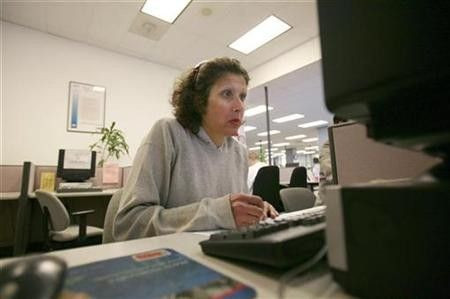Technology Rapidly Making Clerical Jobs Obsolete, Driving Inequality, US Reports

The United States has gained 387,000 managers but lost almost 2 million clerical jobs since 2007, as new technologies replace office workers and further squeeze the American middle class, government figures show.
Data from the Bureau of Labor Statistics, reported Monday by the Financial Times, divide the U.S. workforce into 821 jobs from dishwasher to librarian. They show rapid structural shifts amid the Great Recession that are likely to further increase income inequality, which has already been growing for decades.
Another BLS report, released last week, showed that employment rose in the nation’s major counties from September 2011 to September 2012, but average hourly wages fell.
The figures help explain why the U.S. median household income has fallen 5.6 per cent since June 2009 to $51,404, even as the economy – as measured by traditional yardsticks -- recovers. The top 10 per cent of earners, meanwhile, are reaping most benefits of the recovery.
One likely driver of inequality is new computing technologies that destroy some middle-class occupations even as they create jobs for highly skilled workers who can exploit them, as the FT notes.
The number of such clerical workers as bookkeepers, bank tellers, data entry keypunchers, file clerks and typists has been falling, pointing to a broad, structural decline. The number of retail cashiers has also dropped as online shopping and self-checkout systems erode another entry-level, low-wage occupation.
Clerical workers still account for 16 per cent of U.S. jobs, but technology will probably keep on eliminating them.
Employment growth came from health care, management, computing and food service jobs, the BLS reports. The number of personal care aides is up 390,000 since 2007. Demand for people who devise ways to replace clerical workers – such as operations managers, management analysts and logisticians – grew substantially.
“We see growth in jobs that require complex, personalized interactions, such as home health aides, and continued declines in routine transaction and production jobs that can be scripted and automated,” said Susan Lund, co-author of a McKinsey Global Institute report on the future of work.
But salaries for many of the fast-growing occupations are lower than for those they are replacing. The average wage for a clerical job in 2012 was $34,410 compared with $24,550 for a post in personal care. The average computing wage was $80,180 and for managers, $108,570.
Lawrence Mishel, president of the left-leaning Economic Policy Institute think-tank in Washington, questioned whether technology was the main cause of income inequality, noting that even high-skill job growth has slowed in the past decade. “People focus a lot on occupational trends but it’s not clear to me that they are what’s driving wage outcomes,” he told the FT. “What I think is going on is much bigger: it’s that employers have the upper hand in every area of work.”
© Copyright IBTimes 2024. All rights reserved.



















